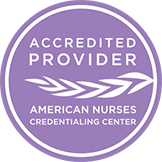A medication aide with a current and valid certificate may give prescription medications to residents of a nursing home, residential care facility, or ICFs/IID. This responsibility is delegated to a mediation aide by an RN or LPN acting at the direction of a registered nurse. A nurse can only withdraw the delegation from a medication aide in cases of resident safety.
A medication aide can give prescription medications using the following methods of administration.
- Oral
- Topical
- Drops to the eye, ear, or nose
- Rectal
- Vaginal
- Inhalants delivered by inhalers, nebulizers, or aerosols, using a single dose of a fixed, pre-measured dose
A certified medication aide cannot give an as-needed medication (PRN) until after a nurse assesses the resident.They can split pills if the prescription requires them to be split. However, the medication aide cannot split pills to change the dose being given. For example, if the doctors wrote a new prescription for a lower dose of the same drug, that would require nursing judgment, so the medication aide has to wait for the new dose to be dispensed.
A certified medication aide cannot give:
- Schedule II controlled substances
- Medications requiring dosage calculation, including inhalants delivered by inhalers, nebulizers, or aerosols
- Medications that are not approved drugs
- Medications being administered as part of clinical research; or
- Oxygen.
They also cannot give injections, intravenous (IV) therapy, or through a jejunostomy, gastrostomy, nasogastric, or oral gastric tube. The facility must prevent the medication aides from having access to controlled substances.
Certified mediation aides cannot:
- Receive, transcribe, or alter medication orders
- Give the initial dose of a medication ordered for anyone
- Give medications to a person other than a resident of a nursing home or residential care facility
- Give any medication without the task having been delegated by a nurse
- Give medications to pediatric residents
A certified medication aide must always show their title when giving medications. They are responsible for demonstrating competence and accountability and maintaining knowledge of their responsibilities and accountability.
Documentation must be done immediately after the medication is given. This documentation must include the name of the medication, dose, route, date and time, the certified medication aide’s name, or the resident's refusal to take the medication. Most medication administration records (MAR) contain all this information.
The certified mediation aide is responsible for following the seven rights of medication administration:
- Right Resident?
- Are you giving the medication to the person it was prescribed for?
- Right Reason?
- Do you know why you are giving the medication?
- Is it the reason for which it was ordered?
- Right Medication?
- Is the medication you are giving the correct medication?
- Is the name of the medication the same as the name of the medication on the prescription or order?
- What should you do if they are not?
- Right Dose?
- Are you giving the right amount of medication?
- Are you giving the amount of medication that is prescribed? Check the number of milligrams (mg) or other units (mcg, i.u., etc.) to make sure that the dose you have matches the order. You might need to break a scored pill in half or give two capsules to get the right dose.
- Right Time?
- Is it time to give this medication?
- Is the medication supposed to be given in the morning or at night? The right time medication should be given on time. “On time” means that the medication should be given within one hour before to one hour after the scheduled time. Be careful to give at the right time of day. It is easy to give a medication ordered for 9 PM at 9 AM. Some medications must be given at specific intervals. You may not rearrange the schedule for these medications for the convenience of the staff or resident.
- Right Route?
- Make sure that oral medications are swallowed, eye drops are dropped into the eye, and ear medications are in the ear.
- Are you giving an eye medication in the eye or the ear?
- Right Documentation?
- Did you document that you gave the medication on the MAR immediately after giving it?
- You must document missed medications correctly and document PRN medications.
Certified medication aides are responsible for giving medications in accordance with the standards discussed in this course and maintaining a safe environment. This includes reporting problems, correctly storing and preparing medications, verifying the resident’s identity, witnessing the resident consuming the medication, and reporting medication errors.
Report to a nurse promptly if the resident is uncomfortable and may need PRN medication. Let the RN know if there is any deviation from normal drug administration. Examples are refusing medication or having an unexpected reaction. Report anything about the resident that concerns you. For example, the resident does not look as good as usual or is acting funny.
Certified medication aides are responsible for correctly preparing and storing all medications. All medication must be kept centrally stored in a locked cabinet, locked cart, or locked storage area at all times. Controlled medications must be double-locked. Use only the medication delivery process that is currently used at the facility. You can give medications that a nurse gives you to administer. Over-the-counter medication should be stored and removed from the manufacturer’s originally labeled container. Remove medications only if they are in the properly labeled container that they were dispensed in. A proper medication label includes the medication name, dose, resident’s name, and expiration date.
Before giving a medication, check to see that you have the correct resident. Some residents will nod or say yes no matter what name you call them, so have the resident tell you their name. If the resident cannot tell you their name, rely on a picture in the MAR or ask other staff to confirm the resident’s name. Make sure the resident swallows any oral medication. Sometimes, residents will hide the medication in their mouths and spit it out after they leave.
Medication error means failing to follow the prescriber's instructions when administering a prescription medication. Medication errors include giving outdated medications, giving the wrong medication, giving the wrong dose, taking the wrong route, giving the wrong resident, and using the wrong technique or method. A medication error also includes failure to give the medication as ordered, incorrect preparation, storage, or administration, or giving a medication that a nurse did not delegate you to give. Immediately report and document medication errors.
Distractions cause medication errors! Find a quiet place to work without a lot of noise or activity. Distractions include talking to others, using a cell phone, texting, watching TV, looking at social media, or listening to music. Always prepare, give, and document medications for one resident at a time. Preparing multiple residents' medication early causes medication errors.
A certified medication aide cannot accept any care assignment that would interrupt or conflict with the process of giving medication. You can be assigned to care that will not prevent you from giving medication.








